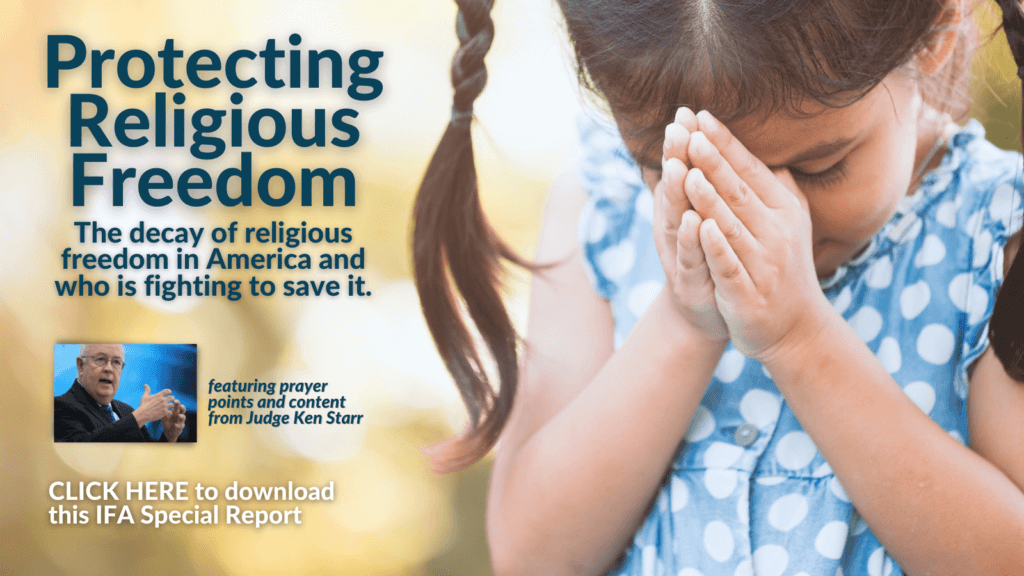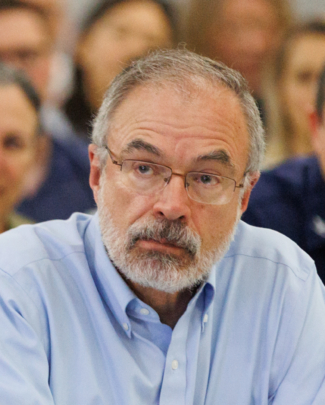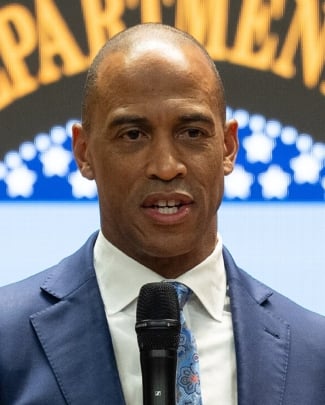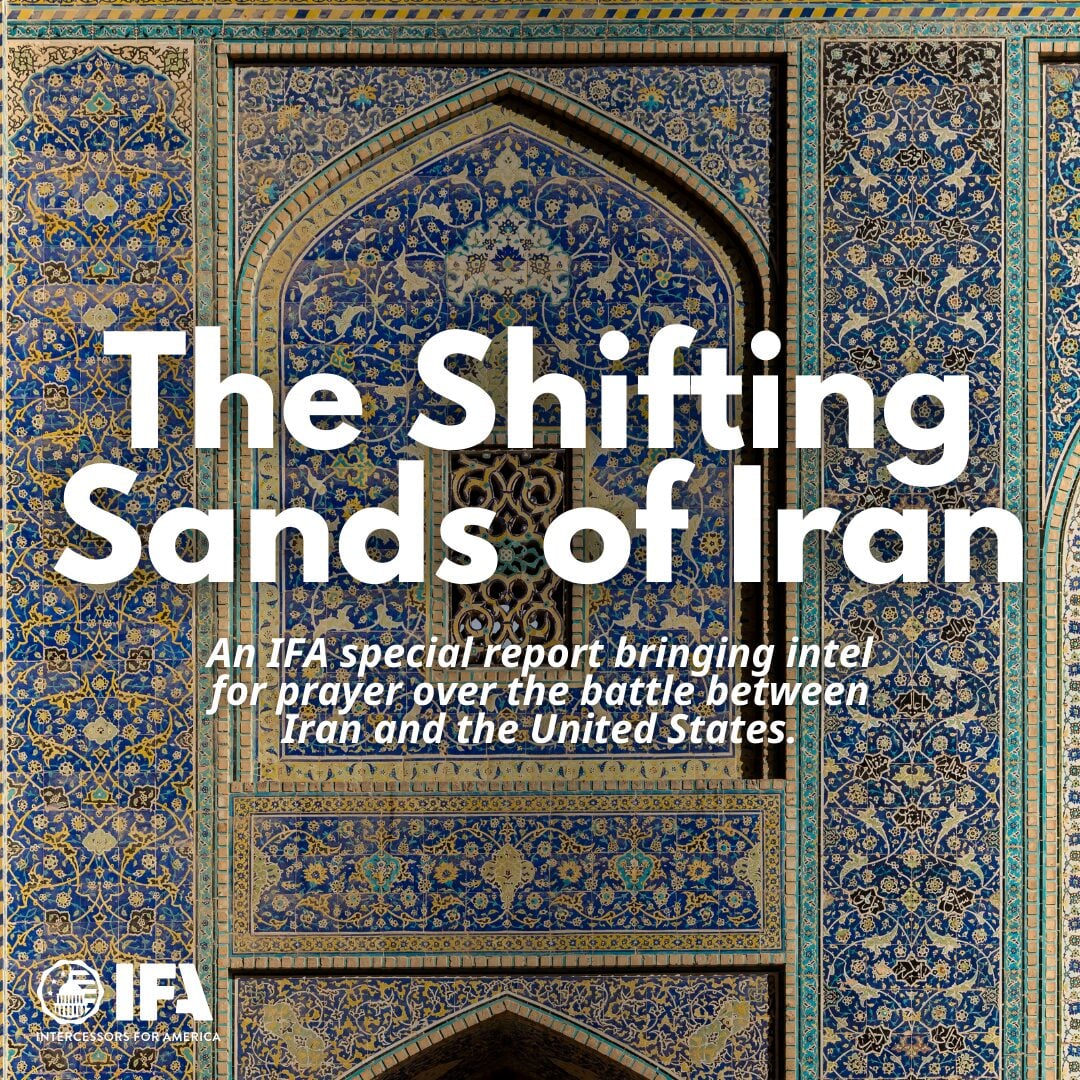Intercession in Public: Never Unconstitutional
Catch the Vision for On-Site Intercession
Justice Alito on the Damage of the Dobbs Leak
Does Biden Have a ‘Cheat Sheet?’
80,000 Sign Up for University Gospel Outreach!
Intercession in Public: Never Unconstitutional
Far too often in our nation now, “Shall we pray” becomes “May we pray?” But the need for prayer within our halls of government is as urgent, even desperate, today as it has ever been. And we must never let ourselves be intimidated into accepting the falsehood that we are “not permitted” to pray publicly.
This content is supported by your donations.
Give today.
Consider what has happened in Great Britain, where the government has criminalized even silent prayer. We Americans must be vigilant in defending our right to worship God according to the dictates of our conscience — specifically, our right to pray, even within the too often darkened halls of government. Indeed, few places need the light of revelation more.
For over 50 years, our nation has had to navigate through governmental vagueness and uncertainties concerning where freedom of religion is “allowed” in our country and where it is forbidden. What became known as the Lemon test (from Lemon v. Kurtzman, 1971) left a sour taste in the mouth of advocates for religious freedom. There was no clear demarcation in such a purely subjective test of avoiding excessive government “entanglements.” But that infamous three-prong (purpose, effect, entanglement) “test,” which, years later, Justice Antonin Scalia referred to as “a ghoul in a late-night horror movie” and Justice Clarence Thomas described as “utterly indeterminate,” was thankfully banished to the halls of obscurity in the 2022 decision of Kennedy v. Bremerton School District. Now, instead of having to untangle a subjective morass of entanglements, we simply look to historical practices and understandings.
Quite simply, we now need look no further than our own history as a guide. The only complication with this is that under liberal-progressive activist courts, our historical course has changed drastically from that envisioned by the Founding Fathers. It only makes sense, then, to clarify which history we should be looking to. It seems apparent that for legislative accuracy, the best place to begin is at the beginning. The Supreme Court alluded to this in 2014, in Town of Greece v. Galloway, by saying that “any test must acknowledge a practice that was accepted by the Framers and has withstood the critical scrutiny of time and political change.” But to an extent, this has left unanswered just which of those Framer-accepted practices have or have not withstood the critical scrutiny of time and political change.
The Kennedy case provides more clarity in setting forth that the interpretation is to be done according to historical practices that view the Free Exercise and Establishment clauses in a complementary light. In lay language, this means that the admonition that Congress shall make no law respecting an establishment of religion must be read as further protection of the unalienable right to worship God according to the dictates of conscience. This can only be accomplished when the historic understanding of religious liberty our Founders held is applied. This is the very same jurisprudential theory James Madison embraces in his “Memorial and Remonstrance Against Religious Assessments,” which Justice Neil Gorsuch references as authoritative in his opinion in Kennedy.
Madison’s “Memorial and Remonstrance” is frequently misapplied for one main reason: He and the other Founding Fathers spoke fluent Judeo-Christian, while the secular philosophers of our day do not. Please note: I do not say that the Founders were all decidedly Christians; God alone can judge human hearts and personal beliefs. What I do confirm is the worldview filter through which they did their thinking. De Tocqueville observed that Americans all seemed to possess that same mindset: They so inextricably connected the principles of Christianity and those of liberty that it was impossible for them to discuss the one in the absence of the other. Reading Madison’s discourse on the glorious light of the revelation of Christianity provides further confirmation of this historic reality.
From a framework of Judeo-Christian jurisprudence, it is abundantly obvious that the complementary relationship between the Free Exercise and Establishment clauses exists only when we keep the civil government within its proper jurisdiction and thereby forbid a trampling upon the personal jurisdiction of the citizens. Madison reaffirms his conviction that religion, or what he defines as our “duties owed to God,” are an unalienable right we possess that precedes the very existence of civil government and that cannot therefore be curtailed in any way by the government. This jurisprudential theory is the only one that views the Free Exercise and Establishment clauses as complementary rather than competitive. And it perceives the prohibition placed upon Congress as an additional layer of assurance that the right to free exercise of religion shall not be infringed. The Establishment Clause is thus not seen as granting any invented “unalienable right” to not be offended by the religious practices of others.
Such an interpretation may help explain why Congress has had no concerns about formally holding Christian church services in the U.S. Capitol. Early on this received support, by the way, from the president of the Senate (and vice president of the United States), who was none other than Thomas Jefferson. At that time, Jefferson had in fact already been elected president of the United States, but he was still finishing out his term as vice president prior to his presidential inauguration. Moreover, Jefferson so faithfully attended Christian church services in the U.S. Capitol himself that an assigned seat was reserved for him.
If anything, Jefferson’s choices only highlight the errors in modern secular jurisprudential theories. Faulty interpretations of his “separation of church and state” have long brought confusion and even government oppression of religious liberties. Only a correct application of the jurisprudential mindset of Madison and Jefferson — that civil government lacks jurisdiction to legislate within the area of rights of conscience — will assure a logical interpretation reconciling our historic documents with the actions of the Founders.
So, what of our rights to prayer and intercession? They must simply never be infringed. This is true even of prayers offered up within the halls of government. Shortly after the very first Congress approved the First Amendment, there was a vote to appoint and pay official chaplains. It is meaningful to note that both houses of Congress have maintained the office of chaplain virtually uninterrupted since then. Our nation has a long history not only of invoking prayers within the halls of government, but even of prayers specifically for good governance. As Benjamin Franklin cautioned during the Constitutional Convention: “We shall be divided by our little partial local interests; our projects will be confounded; and we ourselves shall become a reproach and by-word down to future ages.” Then he counseled: “I therefore beg leave to move — that henceforth prayers imploring the assistance of Heaven, and its blessings on our deliberations, be held in this Assembly every morning before we proceed to business, and that one or more of the clergy of this city be requested to officiate in that service.”
This prudent understanding of our essential dependence upon prayer is what enabled the birthing of our nation. And it is only by the preservation of this notion that our nation can hope to continue to stand.
Please share this article to encourage others to pray for our nation and our freedoms.
Cynthia Dunbar is an attorney, a constitutional scholar, a former law professor at Liberty University School of Law, a board member of IFA, and co-host with Dave Kubal of IFA’s Constitutional Corner. Go to www.dunbarforamerica.com to learn more about our constitutional republic and subscribe. Photo Credit: Intercessors for America.
Partner with Us
Intercessors for America is the trusted resource for millions of people across the United States committed to praying for our nation. If you have benefited from IFA's resources and community, please consider joining us as a monthly support partner. As a 501(c)3 organization, it's through your support that all this possible.


We use cookies to ensure that we give you the best experience on our website. If you continue to use this site we will assume that you are happy with it. Privacy Policy





Comments
Terrific historical and faith based article grounded in the founding principles of our great nation, that relies on the transcendant document the US Constitution. I so appreciate this author’s efforts to compose and share this well written article.
Well written.
Well researched.
Well understood.
Well delivered.